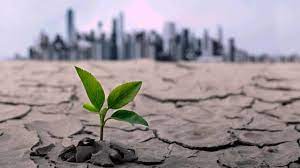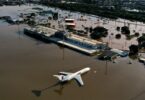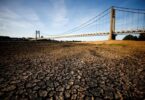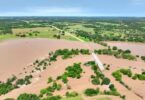Adil Khan
Conflicts and issues in societies are natural because of the presence of diverse groups with different opinions, values, beliefs and with the conflicting interests of the parties. The emergence of a conflict or an issue in a society gives us the chance to establish new and sustainable modes of resolving these issues before getting intensity and causing a potential threat to the existing set up.
Amongst the most dangerous crisis that human society are facing today, Climate change and environmental issues have dominated the spheres of influence of international communities. The changing directions of environmental set up are stressing the world to prepare for the self-made catastrophe in the coming days.
Climate change means the changing of environmental set up particularly the change in temperature of an area in a particular area. Historically there had been changes in the environment with a proper average because of natural processes or climatic cycles in the world.
Records of such changes in the environment are not much destructive because of its proximity with the area and the self-control mechanism of society. But this process of adoptability and mitigation was greatly disturbed by the industrial revolution. The industrial revolution resulted in the deforestation of jungles, greater corban emissions and methane gas. As a result, the temperature of the world began to boil. Due to which humans are facing severe threats to their existing in society.
The Increasing industrialization, growing areas of Urbanization and continuous deforestation resulted in the rapid changing of temperature over time. In order to clearly understand the directions of changes in the environment, the records of global Temperature measurement were started in 1970. Historically, the average change in temperature from 1970 to 2012 was approximately 12.7 °c which was raised to 16.7 °c in 2016. In a recent record, the global temperature has reached 17.3°c on July 6 2023. July 6, was the hottest day in the world in terms of global Temperature.
The results of changes clearly indicate the notion that , Climate change is not going to happen in the next 20 or 30 years . It is happening now and we therefore should need to prepare in order to be safe from the devastating impacts of global warming and climate change in the coming days.
Since the 1990s, the world is trying to devise plans for the adoptability and protection of the human environment. The United Nations Framework Convention on Climate Change, the Paris agreement and the minutes of the COP 27, at Sharm Al Sheikh Egypt, in the form of Loss and damage fund, and particularly the mission 2030 of Sustainable Development Goals are contributing greatly to the issue of climate change. But still a strong mechanism to combat climate change and other natural disasters doesn’t seem to exist because many of the developed countries are yet to contribute to the process of mitigation and adoptability through financing.
Pakistan is amongst the 10 most effected countries in the world. Our corban output is less than 0.8 percent but still we are suffering badly from climate change. Last Years we experienced a flood which put one third of the Country under water. About 94 districts throughout the country was badly effected. A huge amount of 40 Million People displaced and majority of them settled in Quetta and Peshawar which was already amongst the active flood zones. Pakistan faced a damage of 30.2 Billion.
Poverty increased by 1.7 percent. Flood highly damaged public and private sector areas including: Housing, Agriculture and livestock, Education, Health, Infrastructure, Transportation and Communication etc. All these Events led to the disruption of Normal life for almost a half a month. According to the Climate Change Development Report, Pakistan will need a Fund of $ 348 billion for rehabilitation and development.
Pakistan should need to devise a strong mechanism for the protection of infrastructure and to develop resilient Infrastructure in the country in collaboration with other stake holders in order to offer a strong resilience to the changing environmental conditions and to reduce the losses in the country. Steps like the reforestation of unproductive areas with environmental friendly trees, Decorbanization of environment through urban strategies and industrial output regulations through taxation and process improvement of industrial system.
Climate Change is a global issue, it requires global consensus and multidimensional Approach to be tackled. The challenges of climate change we are facing now are enormous and urgent, and requires a profound transformation in each of the productive sectors and in each region around the world. It also requires a change in the behavior and lifestyles of individual human being. These transformations can be possible only if countries cooperate with each other financially, technologically and by strengthening capacities of the leaders if international communities to take steps towards a more equitable and sustainable development pathway.
The writer is student of BS Pakistan Studies at Jahanzeb College Swat.







